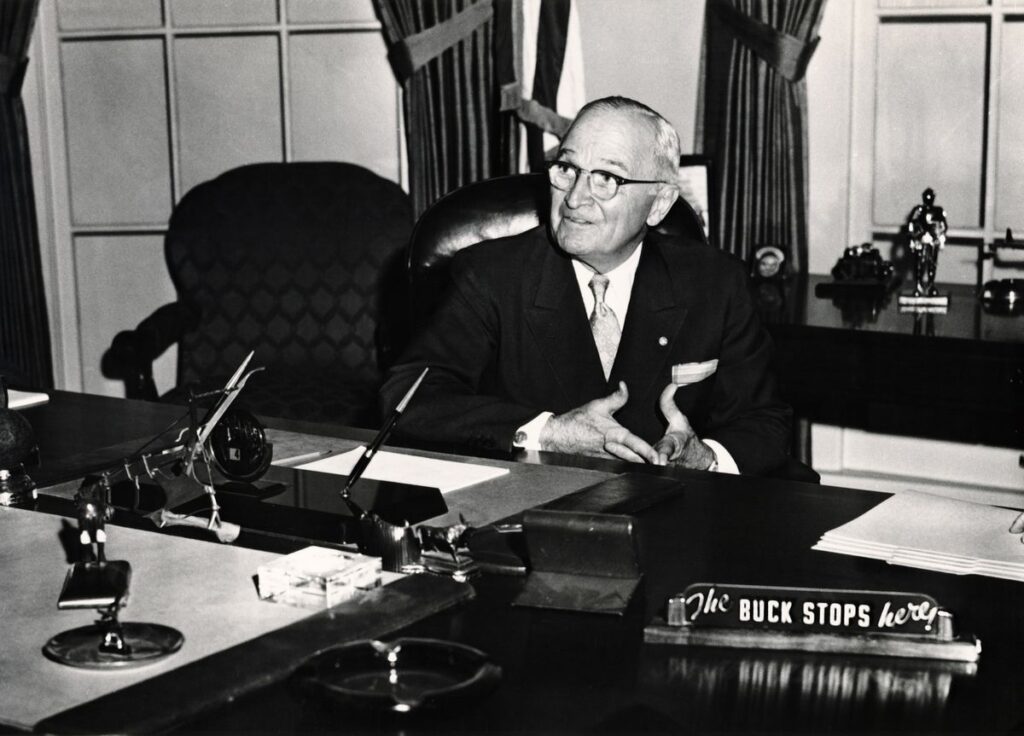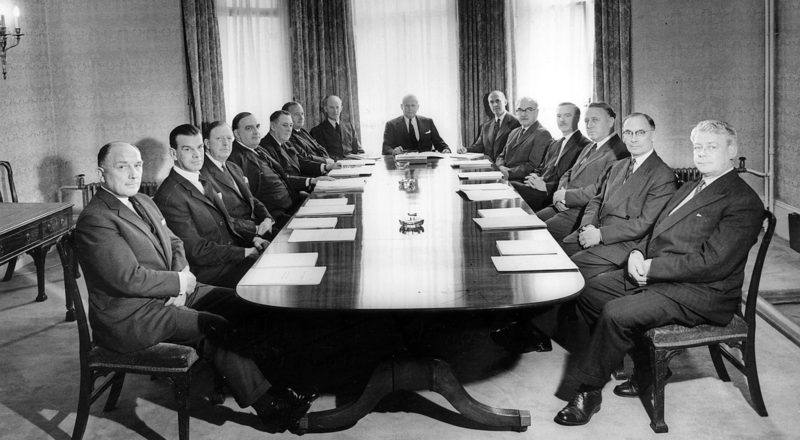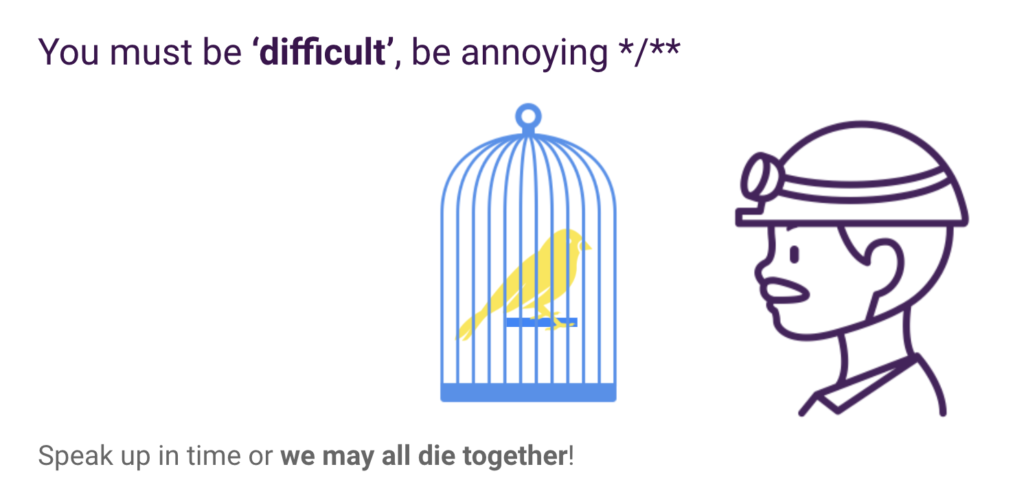- don’t bring me problems, bring me solutions
- if you can’t measure it, you can’t manage it
- fake it ’till you make it
- this is how things are done
- in the end, the buck stops with me
1: don’t bring me problems, bring me solutions
Historically there’s a double meaning behind this advice:
- making people think for themselves is a good way to boost confidence in their own abilities to solve (complex) problems
- saving other people’s time. if everybody shared every problem with everyone else, we’d be doing nothing but solving each other’s problems.
And that’s where it is wrong! You are indeed saving someone else’s time but you are delaying the time it will take to solve the problem you have identified. Of course, you have already thought about solutions while thinking about the situation. But if you didn’t find them, don’t waste more of your time not to waste someone else’s. How many times weren’t you overcomplicating things for yourself and the next person you talked to reframed the problem definition just by having a fresh pair of eyes look at it?
Here’s a slide I once made for a team culture deck. Be difficult, be annoying! Be our canary in the coal mine. The asterisks were “know who to be annoying to” and “ultimately that could always be me” 🙂
I would love to replace the whole concept with the following advice I once got many years ago in a sales training: NEVER LOSE [a deal)] ALONE!
ProTip: go read Mathias Verraes’s post on ‘the Wall of Technical Debt’. A brilliant concept where problems (in this case technical debt) are acknowledged just by putting them up on a wall. No solutions necessary, just making it transparent. This could work for ANY type of problem domain.
https://verraes.net/2020/01/wall-of-technical-debt/
2: if you can’t measure it, you can’t manage it
Oh well, just go read my entire rant on “stop measuring everything” from three years ago – LOL. But beyond that, there are managers out there who truly believe that you can put a number on everything and that is the (only) way you track progress. If you do want to measure something, measure progress and direction, not speed.
I truly would love to bring back more management by gut-feeling. Are we doing the right thing? Are we making the right call? Are we heading in the right direction? How does this FEEL?
Management is about making difficult decisions in complex situations where the data is always incomplete. Sometimes we search for data to make decisions as an excuse to hide behind if things go wrong. That has nothing to do with making good decisions. I’m not advocating against measuring, I’m advocating against management by numbers.
When we make gut-feeling decisions, we are still using data without calling it like that. A gut-feeling is basically a prediction of how things might evolve, based on all your previous experiences. These experiences (your personal data points) have created mental models in your brains that are emerging when you need them. This is how a firefighter knows how and when to go into a building or staying out of it in a split second. They didn’t ‘measure‘ anything and are still right every single time although every single fire is a unique event. You may not know the data-points you were using, but that doesn’t make your mental models wrong or less useful.
Many people who have worked with me over time have known me to make predictions I couldn’t prove and still came out exactly the way I said so many years later. That is because for every prediction I make, I create a fresh mental model and I am not limited by the number of attributes we would have selected in a physical data model.
If you’d like to read some literature on this topic, I strongly suggest you pick up some books by Gary Klein (Goodreads), especially ‘Sources of Power’, and ‘Streetlights and Shadows‘.
3: fake it ’till you make it
Oh my, how are we going to unpack this … I’m not entirely sure this counts as an old-school principle, but it definitely counts as one that should be binned in my opinion. I have a natural aversion towards lying and dishonesty. And this is basically what you are doing when you “fake it till you make it”.
When you “fake it till you make it” you are setting yourself and everyone else up for disappointment!
Example: I have long fought against things like NPS (Net Promotor Score) as a measurement of customer happiness. It’s not. It’s a marketing metric since all it is doing is asking if you’d speak well about the product to others. It says nothing about the value it created for them. Therefor, I have always wanted to introduce a “Nailed the Promise Score“. When you are buying a product, both yourself and the person selling it to you are making a promise on what you want to get out of it. Asking if we nailed that promise is exactly what we should be getting from our clients.
So I want to bring back more authenticity in management and business in general. Being true to what we are offering and (still) building, getting people to believe again. Being realistic in business plans, rather than overly ‘ambitious‘ will create more sustainable businesses over time.
When you truthfully say you don’t know the answer to a question, people will tend to listen more when you do answer the next question. When people read my blogposts, they will immediately know it wasn’t written by ChatGPT. In this day and age, daring to come out without artificial support will tremendously differentiate the people who bring true value over artificial value. In the end, authenticity always wins when it comes to building lasting (business) relationships.
4: this is how things are done
Probably one of the most challenging aspects in life as well as in business. A lot of the times we do things like we think they should be done because that’s how we are supposed to be doing it. Whether we learned it from our parents, through some kind of overpaid MBA course, or even worse just being told by someone else as “that’s how it’s done“.
Anytime someone makes a ‘statement’, my natural response is “is that right?“, followed by “why is that so?“. I recently heard this great quote that said: “we call something a tradition as soon as we no longer remember the reasons why we do it”.
In business, this translates to continuously questioning everything you do. At times this can be extremely tiresome. I know many colleagues that have called me that just because of this trait. When you operate in innovative spaces, many people will tell you to challenge the status quo, but very little of them will let you actually do that. Especially when ego and money are involved or risk-averse stakeholders.
The reason Elon Musk was so successful in bringing Tesla to the market is that he questioned every single aspect of how a car is built and changed that where necessary. If he hadn’t rethought the entire manufacturing process, this would never have worked the way it worked in that timeframe. And that is the exact reason none of the incumbents are even close to following Tesla’s speed of innovation.
We somehow all know that this shouldn’t be the case but it’s easier to follow what is the safe path and we overlook how much we do this on a daily basis. But when you are prepared to challenge EVERYTHING, this is what you get in return: unmatched speed through agility at the lowest cost possible through a lean organization. But you’ll have to be able to grow a pair and be ready to fight a lot of people in your path …
5: in the end, the buck stops with me
“The buck stops here” is a phrase popularized by US President Truman and that refers to passing responsibility called “passing the buck“. Truman showed here that he holds the end responsibility for all decisions as there was nobody else he could pass the buck to.
Now, how can I ever be against this principle? I’m NOT. In fact, it is one of my own core principles I deploy with people who work in my command. I will give people the power to take their own decisions and I will own the end responsibility for those actions, no matter the outcome.
But it is the way I have seen many, many C-level executives (ab)using that phrase and shutting down discussions to avoid confrontation. Mostly to avoid losing their face or bruising their ego by being proven wrong by people lower in rank. They use phrasings like “I’m making this call as in the end it is my responsibility if things go wrong“. That’s quite the opposite of how I am using that exact same phrase. I hope you understand the difference and will be able to use it in your management practises.

Right … got that off my chest. LOL
I promise I’ll write a positive post on what I believe are good management principles next
If you are interested in any of the insights I can bring to your company, I do recommend you have a look at my service page and schedule a meeting. https://hansdeleenheer.com/services/

